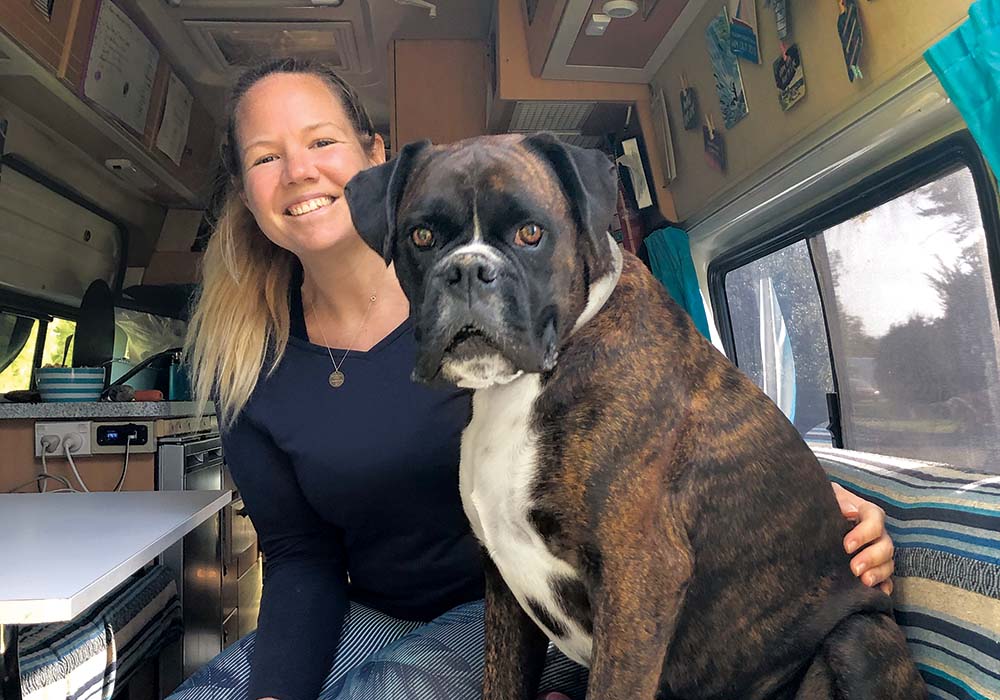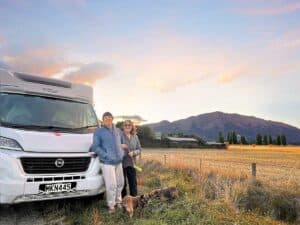So many of us love our animal companions, but taking them on the road with you can be stressful if you don’t know what to expect. MCD writer Lisa Jansen explains all in this extract from her new book, The Nomad’s Ultimate Guide To New Zealand.
According to Companion Animals New Zealand (CANZ), nearly two-thirds of Kiwi households have at least one pet. Forty-one percent of New Zealand families include at least one cat, and 34 percent include a dog. That makes New Zealanders some of the world’s greatest pet lovers. If you are among the many Kiwis who love to travel with a furry family member, you will have to think about how your lifestyle impacts them – and how having a pet with you might impact your nomad lifestyle.

Will your pet adapt to life on the road?
Pet owners often worry if their pets will adapt to nomadding, but like everything else, you can’t be absolutely sure until you give it a try. Some take really well to travel, as long as they’re always in the proximity of their owner. Some become neurotic messes. How well do you know your pet? Will they thrive or barely survive? Will they adapt or perish?
To many people’s surprise, you can teach an old dog – and an old cat – new tricks. In fact, many an older pet finds a new zest for living in a life of travel. Anecdotally, cats tend to adapt surprising well to nomadding. Whereas dogs are generally happy if they’re with their pack, cats tend to adopt a particular favourite human, and as long as that human is reasonably available, they’re okay.
Some pets, even with the best intentions, cannot adapt to nomadding. After all, nomadding is your decision, not theirs. It’s important, therefore, that when it comes to your pets, you have a ‘plan B’ if life on the road doesn’t work out for them. These things have to be handled with some delicacy. No family member or friend needs to feel that they’re being lumped with your pet just because you’ve decided on the nomad life. You also need to accept that some pets will have a ‘whatever’ attitude to going to a new home, whereas others will have abandonment issues.
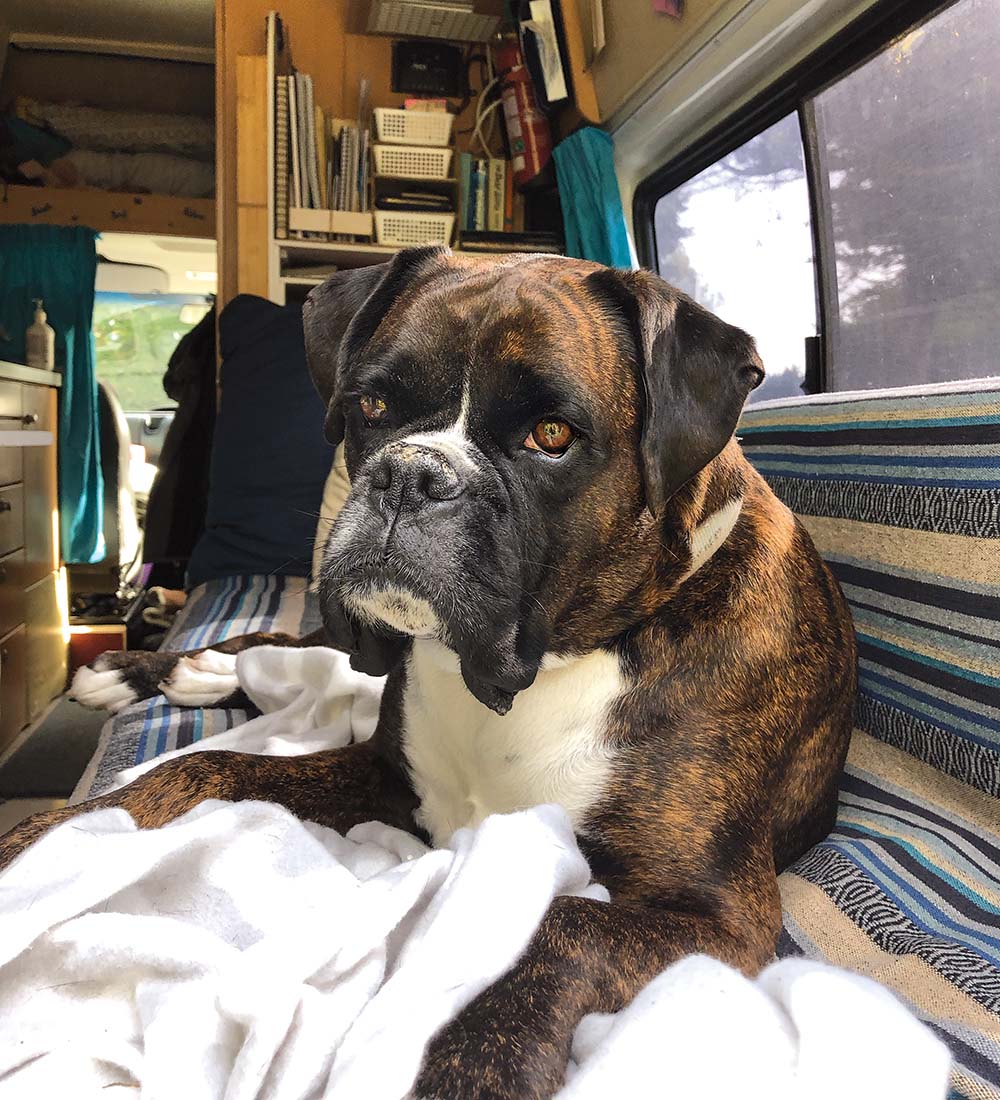
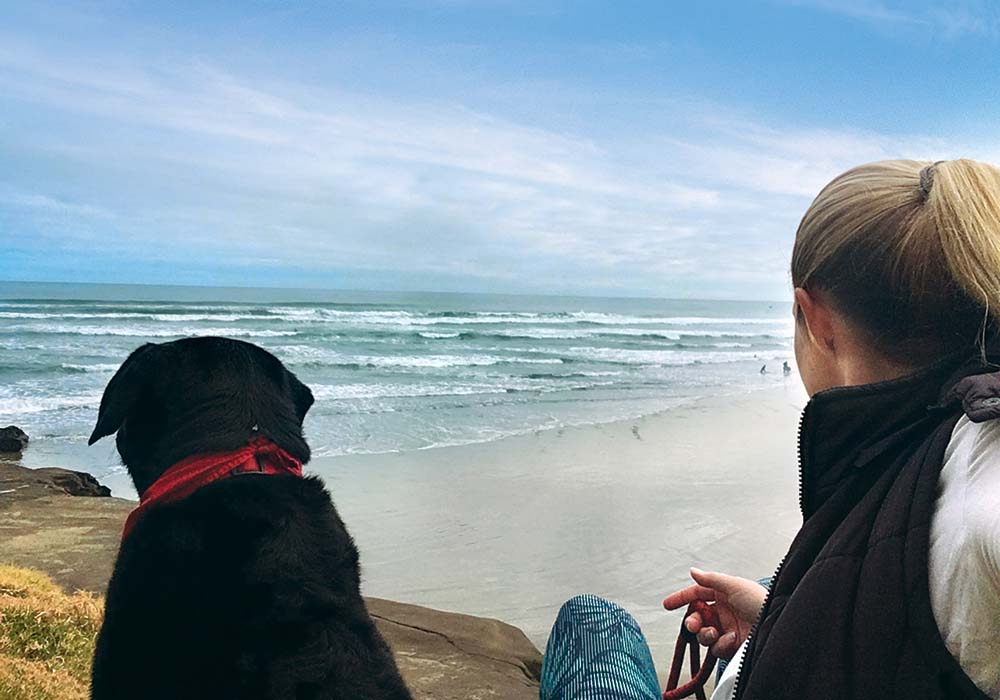
How will a pet impact your nomad life?
In addition to thinking about if and how your pet will adapt to the nomad life, you also should think about how travelling with a pet will impact your experience.
Even though there are thousands of birds, reptiles, horses, rabbits, guinea pigs and other small mammal pets, by far the most common pets are dogs and cats, particularly when it comes to nomads. So that’s where our focus will be.
The first thing you have to keep in mind when planning your nomad life with a pet is that, even though New Zealanders love animals, you can’t assume that your dog or cat will always be welcome. In fact, you might be surprised how many places in New Zealand don’t allow pets.
Many DOC campgrounds, national parks and conservation areas don’t allow dogs and cats to protect the wildlife. Often this includes pets in vehicles, so you can’t even leave them behind while you go for a short walk.
Some beaches don’t allow dogs – either at all or during certain hours (usually when it’s busy). Some campgrounds don’t allow dogs (or cats), in particular during the busy summer months.
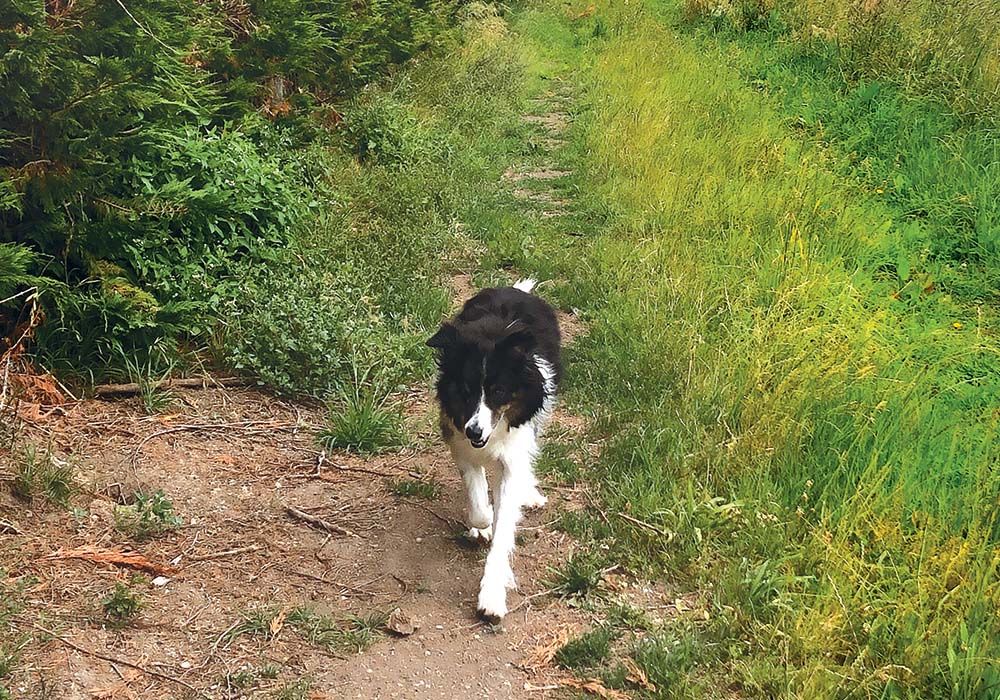
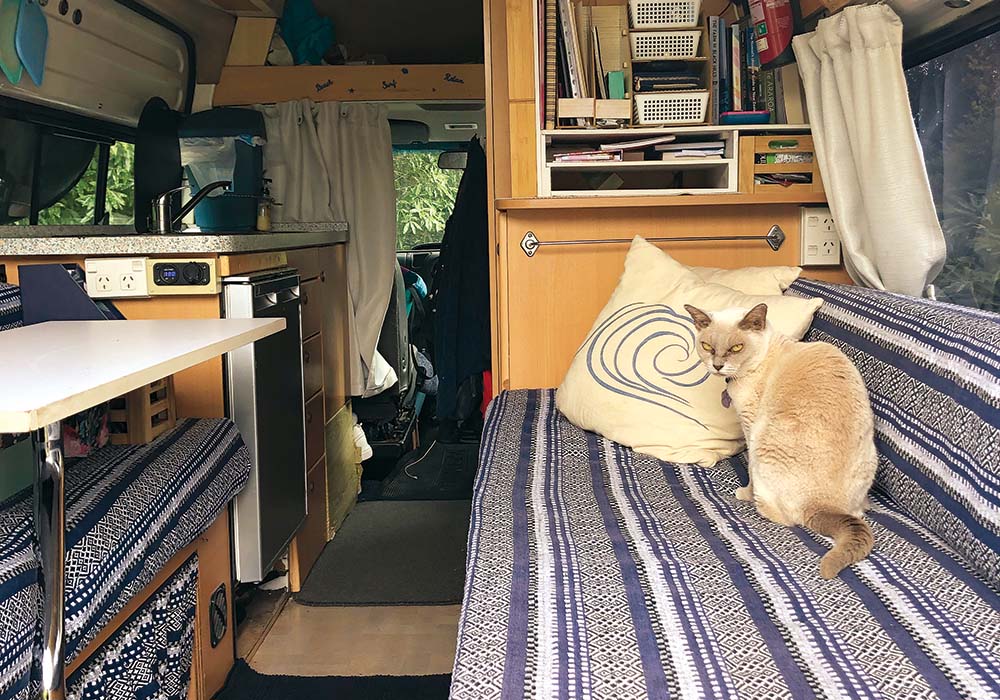
That means, as a pet owner, you need to think ahead a bit more to make sure you know where you can go and stay with your dog or cat.
Luckily, there are now several mobile apps that make this easier. Most of the individual apps give you an indication whether pets are allowed at a campground. ‘All Trails’ help you find dog-friendly walks. ‘Paw Planet NZ’ can help you find just about anything dog related across New Zealand.
Keep in mind though that even in places where dogs can go, they might not be allowed off their lead. Your dog might find that they have less freedom than if you had stayed in your house.
Another aspect you need to consider is that you can’t leave your pets, especially dogs, alone in the RV for long periods of time. They will need to go to the toilet. In addition, like a car, an RV will heat up in the sun, so unless you have air conditioning or can leave several windows open, your pet could suffocate. And it’s also simply not nice to leave a pet alone, locked up in a small RV for long hours on a regular basis. While some might not mind (more likely cats than dogs), most will prefer to have a bit more space to run, and to have their people around.
On a more mundane level, some people love having a very cuddly relationship with their dogs, while others prefer a little more distance. Having a dog in an RV boils down to one question: can you put up with the smell of wet dog in a campervan or trailer for days at a time?
You’ll also need to make space for your furbaby. This includes bedding and storage for food and other basics. If you travel with a cat, you might need room for a cat toilet. The same adaptations to minimalism you have to make for yourself apply to your pets too. There simply isn’t enough room for more than a couple of leads (one spare if the main one breaks) and there’s unlikely to be room for twenty different toys. In any case, with an entire country to explore, most dogs will be in heaven, sniffing about all over the place. And we all know cats are usually pretty good at entertaining themselves.
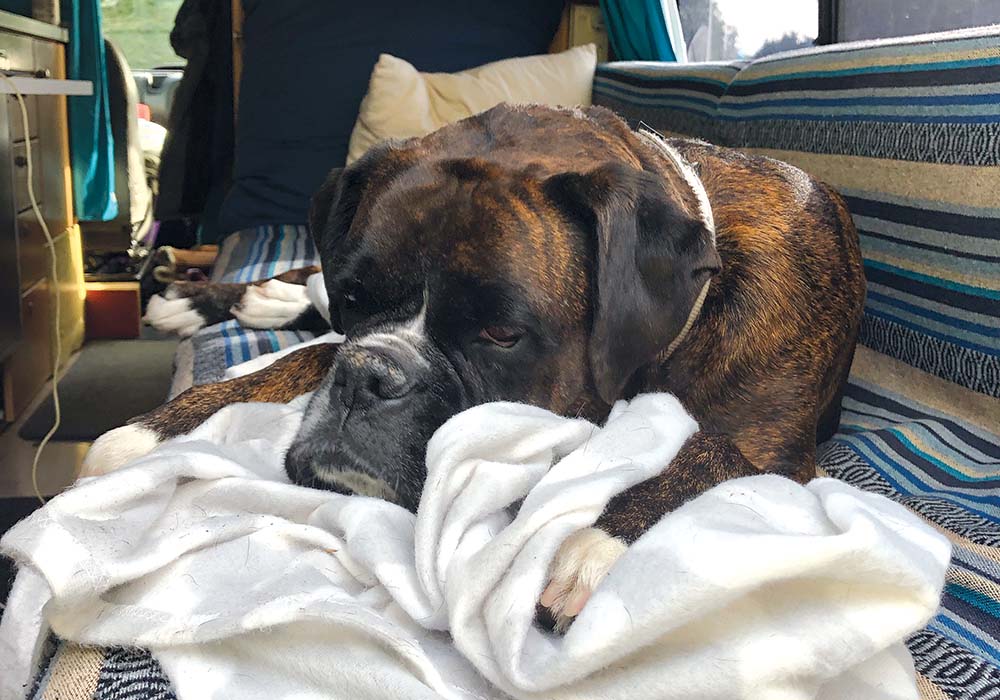
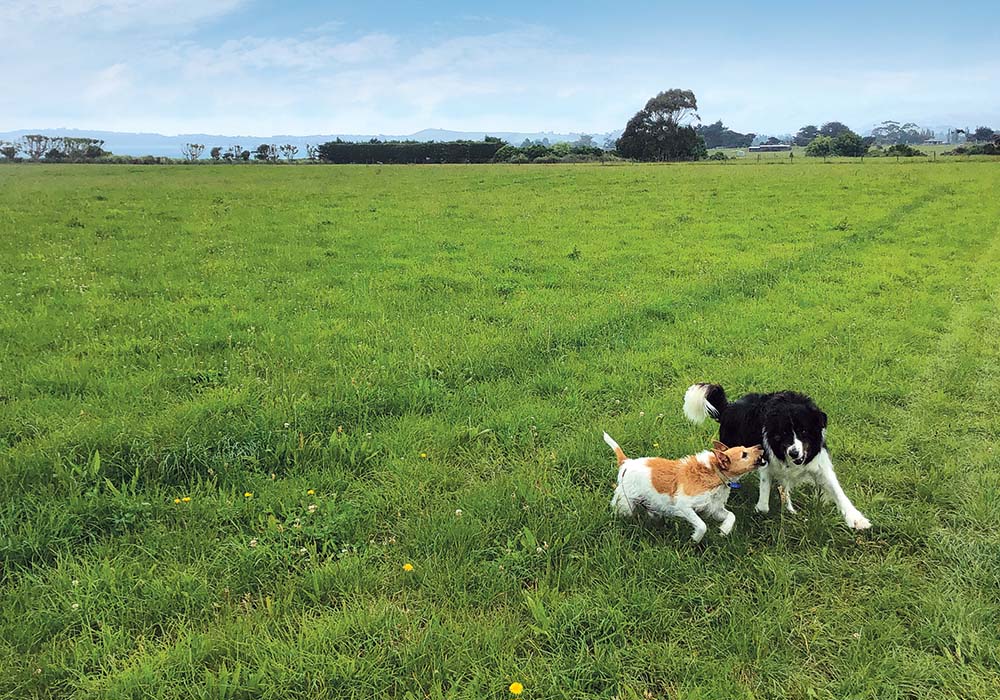
Separation Anxiety
No matter how much you love your furbabies, there will inevitably be times when you’ll have to leave them alone for a bit. You might have to zip down to the shops, or you might want to go on a shorter walk or bike ride where you can’t take your pet. Cats generally handle separation better than dogs, but not all dogs are the same. One way to be unpopular at a campground is leaving your crying or barking dog behind for your neighbours to listen to while you’re out enjoying yourself. So if your dog suffers from separation anxiety, you need to work on that with them – ideally before hitting the road.
Just in case you didn’t know, some dog breeds are more susceptible to separation anxiety than others. If you don’t have a dog yet, and if you’re thinking about getting one, check with your vet about how a particular dog breed generally handles separation anxiety.
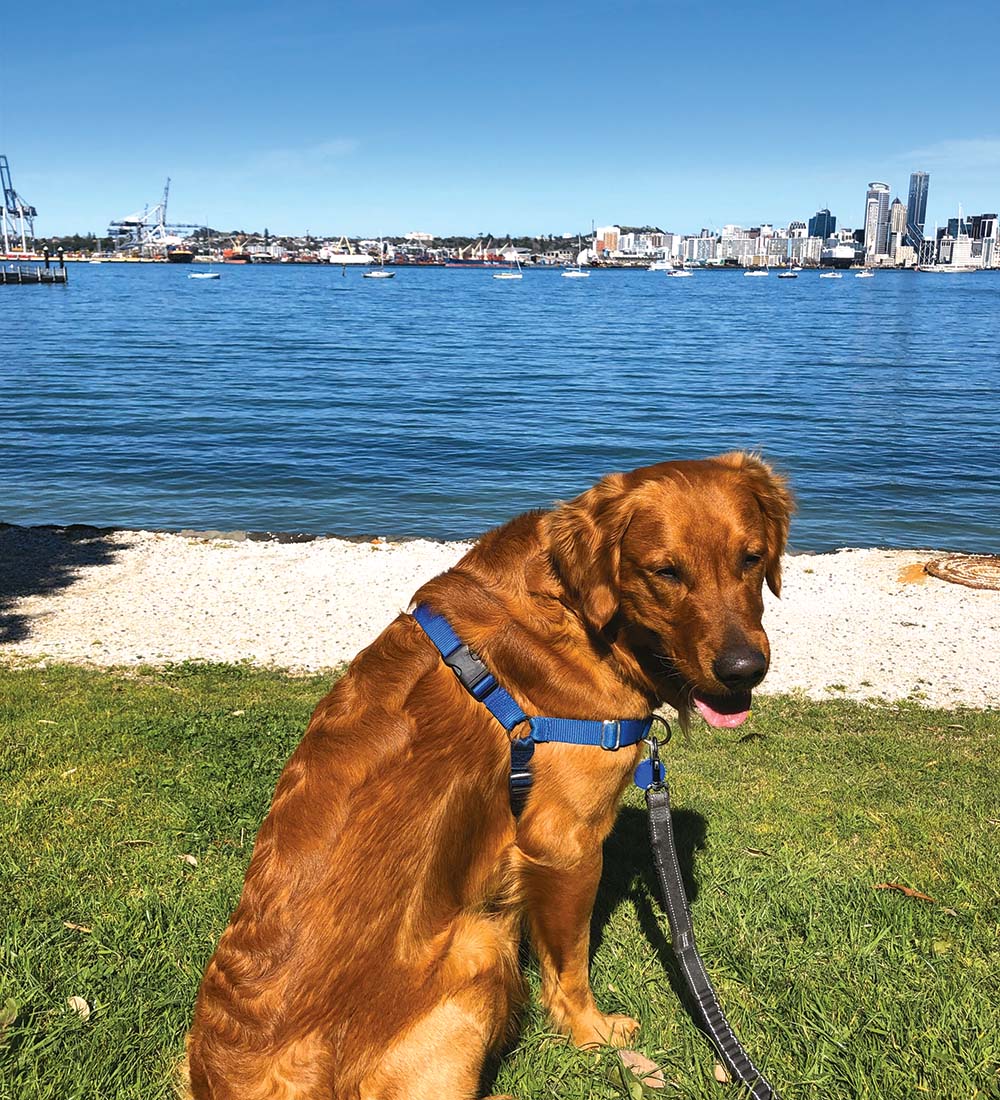
Pet etiquette
As difficult as it might be for animal lovers to imagine, some people just don’t like dogs or cats. Some are even afraid of them – sometimes for good reasons. Many pet owners automatically assume that other people are going to love their pets. Many pets assume that everyone is going to love them, too. This is a dangerous assumption, so be mindful if your dog (it’s usually a dog) trespasses on somebody else’s personal space. On the other side of the equation, if you don’t like other people’s pets, you should be firm but clear about it. If the pet owner is so clueless that they don’t take the hint, they have no right to be shocked if you decide to be, say, more assertive about how much you don’t want their dog to pester you.
As a general rule, keep your dog on a lead when other people are around, make sure they don’t do their business on your neighbours’ sites and pick up after them. Keep in mind that not everyone loves cats, or other pets, either, so the same rules should apply to them.
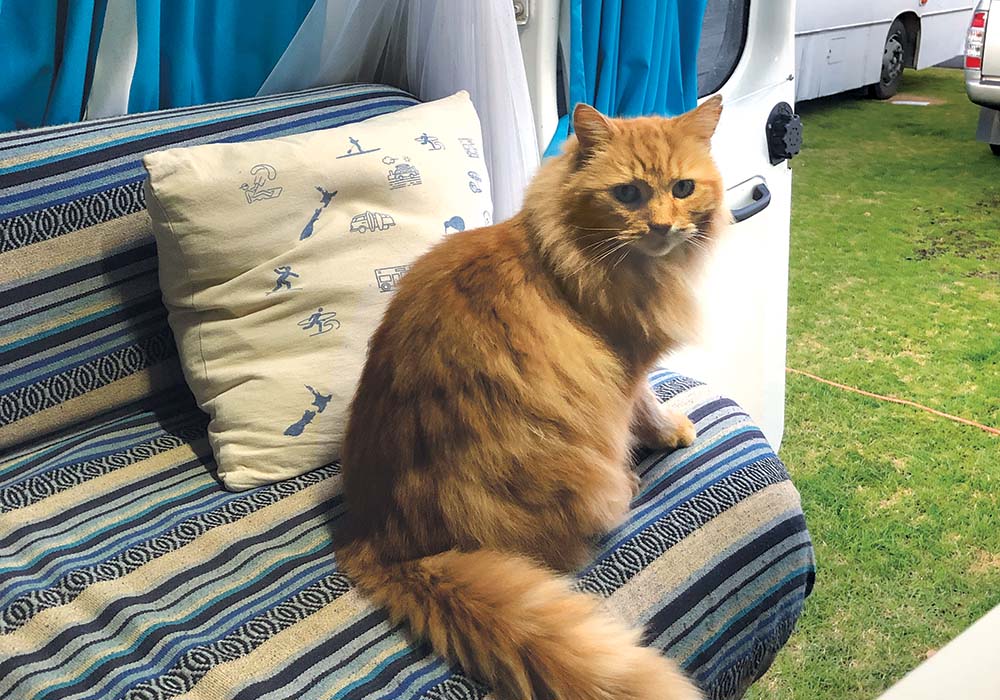
Basic pet travel checklist
Before you take your pets on any long journey or a total change of life, keep the following things in mind.
- Book a visit to the vet: Give your pet a health check just to make sure that there aren’t any problems that might cause complications later.
- Campsite selection: Make absolutely sure if you’re going to
a campsite or national park that they don’t have a problem with pets, especially dogs. Phone ahead first if you have to. - Documentation and medication. Make sure that licences, ID tags, vaccinations and flea and tick treatments are current and that computer tag chips are in working order.
- First aid: Pets need a first aid kit just as much as humans do. Make sure that yours is fully stocked for your specific pet and that you know basic pet first aid.
- Leash, tether, stake: If you have a leash, tether and stake arrangement, you can stake your dog with plenty of wiggle room so that you don’t have to be constantly holding the leash.
- Poop bags: Just because you’re in the middle of the bush doesn’t mean that you don’t need to pick up after your dog. Toilet hygiene is important at many campsites and in many parks too in order to keep trails clean.
More Information
 This article is an extract from the recently published book The Nomad’s Ultimate Guide to New Zealand, a collaboration between New Holland Publishers and MCD writer Lisa Jansen.
This article is an extract from the recently published book The Nomad’s Ultimate Guide to New Zealand, a collaboration between New Holland Publishers and MCD writer Lisa Jansen.
Looking for motorhomes or caravans for sale in NZ? Browse our latest listings here.

